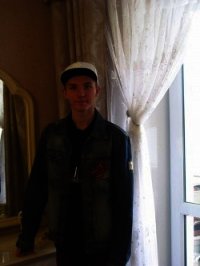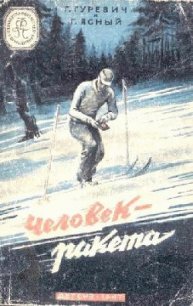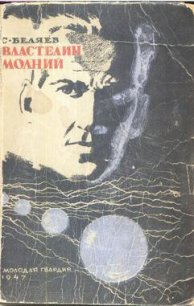Collected Poems 1947-1997 - Ginsberg Allen (книги серии онлайн .TXT) 📗
Peace in Bosnia-Herzegovina
After the Party
After Olav H. Hauge
These knowing age
C’mon Pigs of Western Civilization Eat More Grease
Here We Go ’Round the Mulberry Bush
Tuesday Morn
God
Ah War
Excrement
New Stanzas for Amazing Grace
City Lights City
Newt Gingrich Declares War on “McGovernik Counterculture”
Pastel Sentences (Selections)
Nazi Capish
Is About
The Ballad of the Skeletons
“You know what I’m saying?”
Bowel Song
Popular Tunes
Five A.M.
Power
Anger
Multiple Identity Questionnaire
Don’t Get Angry with Me
Swan Songs in the Present
Gone Gone Gone
Reverse the rain of Terror
Sending Message
No! No! It’s Not the End
Bad Poem
Homeless Compleynt
Happy New Year Robert & June
Diamond Bells
Virtual Impunity Blues
Waribashi
Good Luck
Some Little Boys Dont
Jacking Off
Think Tank Rhymes
Song of the Washing Machine
World Bank Blues
Richard III
Death & Fame
Sexual Abuse
Butterfly Mind
A fellow named Steven
Half Asleep
Objective Subject
Kerouac
Hepatitis Body Itch …
Whitmanic Poem
American Sentences 1995–1997
Variations on Ma Rainey’s See See Rider
Sky Words
Scatalogical Observations
My Team Is Red Hot
Starry Rhymes
Thirty State Bummers
“I have a nosebleed …”
“Timmy made a hot milk”
“This kind of Hepatitis can cause ya”
“Giddy-yup giddy-yup giddy-yap”
“Turn on the heat & take a seat”
Bop Sh’bam
Dream
Things I’ll Not Do (Nostalgias)
Afterword
Notes
Index of Titles, First Lines, and Original Book Sources
About the Author
ALSO BY ALLEN GINSBERG
Copyright
About the Publisher
COLLECTED POEMS 1947–1980

“Things are symbols of themselves.”
Portions of this work have appeared in the following Allen Ginsberg books:
Airplane Dreams. House of Anasi, Toronto/City Lights Books, San Francisco, 1968.
Angkor Wat. Fulcrum Press, London, 1968.
As Ever: Collected Correspondence Allen Ginsberg & Neal Cassady. Creative Arts Book Company, Berkeley, 1977.
Empty Mirror, Early Poems. Totem/Corinth, New York, 1961.
The Fall of America, Poems of These States 1965–1971. City Lights Books, San Francisco, 1973.
The Gates of Wrath: Rhymed Poems, 1948–1951. Grey Fox Press, 1972.
Howl & Other Poems. City Lights Books, San Francisco, 1956.
Indian Journals. City Lights Books, San Francisco, 1970.
Iron Horse. City Lights Books, San Francisco, 1974.
Journals: Early Fifties Early Sixties. Grove Press, New York, 1977.
Kaddish and Other Poems, 1958–1960. City Lights Books, San Francisco, 1978.
Mind Breaths: Poems 1972–1977. City Lights Books, San Francisco, 1978.
Planet News. City Lights Books, San Francisco, 1968.
Plutonian Ode: Poems 1977–1980. City Lights Books, San Francisco, 1982.
Poems All Over the Place: Mostly Seventies. Cherry Valley Editions, Cherry Valley, NY, 1978.
Reality Sandwiches: 1953–1960. City Lights Books, San Francisco, 1963.
Sad Dust Glories: Poems Work Summer in Woods 1974. Workingmans Press, 1975.
Straight Hearts’ Delight: Love Poems & Selected Letters, by Allen Ginsberg and Peter Orlovsky. Edited by Winston Leyland. Gay Sunshine Press, 1980.
To
Naomi Ginsberg
1894–1956
Louis Ginsberg
1896–1976
Author’s Preface, Reader’s Manual
Arrangement of Text
Herein author has assembled all his poetry books published to date rearranged in straight chronological order to compose an autobiography. Collected Poems includes seven volumes published in City Lights Pocket Poets series: Howl, Kaddish, Reality Sandwiches, Planet News, The Fall of America, Mind Breaths, and Plutonian Ode, backbone of three decades’ writing.
Books circulated less widely by delicate small presses (excepting song experiments in First Blues) fill gaps in the sequence. Youthful poetries were printed in Empty Mirror and The Gates of Wrath. Three odd books, Angkor Wat, Iron Horse and Airplane Dreams, interleaf poems of the 1960s. Poems All Over the Place flash on spots of time from President Kennedy’s assassination day, through 1972 Presidentiad, to author’s meditation practice in his fiftieth year.
Among half-dozen poems taken from prose journal and letter books, one singular rhapsody, “The Names,” falls into place, with motifs from “Howl” particularized in 1958.
“Many Loves” manuscript, detailing first erotic encounter with a lifelong friend, not printed till now for reasons of prudence and modesty, completes a sequence of writing that included “Sunflower Sutra” and “America,” Berkeley 1956.
Advantages of Chronological Order
The Gates of Wrath’s imperfect literary rhymes are interspersed with Empty Mirrors raw-sketch practice poems. Disparate simultaneous early styles juxtaposed aid recognition of a grounded mode of writing encouraged by Dr. Williams, “No ideas but in things.”
“A Strange New Cottage in Berkeley” precedes “A Supermarket in California” because it was composed on top of the same page, originally one poem in two parts, here rejoined.
Travel poems Calcutta-Saigon-Angkor Wat-Japan, 1963, mixed through three separate books, now cohere in sequence.
Cross-country Auto Poesy chronicle starts 1965 at Northwest border (The Fall of America), continues through Wichita vortex East (Planet News), recrosses U.S.A. Oakland to New York (Iron Horse) and tarries 1966 East, returns via Chicago North of vortex 1967, and comes back through Northwest passage 1969 (The Fall of America).
* * *
Reader exploring Collected Poems mass of writing will find Contents divided into ten sections, roughly indicating time, geography, and motif or “season” of experience.
Reader may further observe poetic energy as cyclic, the continuum a panorama of valleys and plateaus with peaks of inspiration every few years. This chain of strong-breath’d poems links “The Song of the Shrouded Stranger of the Night,” 1949, with “The Green Automobile,” 1953, “Siesta in Xbalba,” 1954, “Howl,” “Sunflower Sutra” and “Many Loves,” 1955–1956, “The Names,” 1958, “Kaddish,” 1959, “TV Baby,” 1960, “The Change,” 1963, “Kral Majales,” 1965, “Wichita Vortex Sutra,” 1966, “Wales Visitation,” 1967, “On Neal’s Ashes,” 1968, “September on Jessore Road,” 1971, “Mind Breaths,” 1973, “Father Death Blues,” 1976, “Contest of Bards,” 1977, “Plutonian Ode,” 1978, “Birdbrain!” and “Capitol Air,” 1980.*
Texture of Texts
“First thought, best thought.” Spontaneous insight—the sequence of thought-forms passing naturally through ordinary mind—was always motif and method of these compositions.




